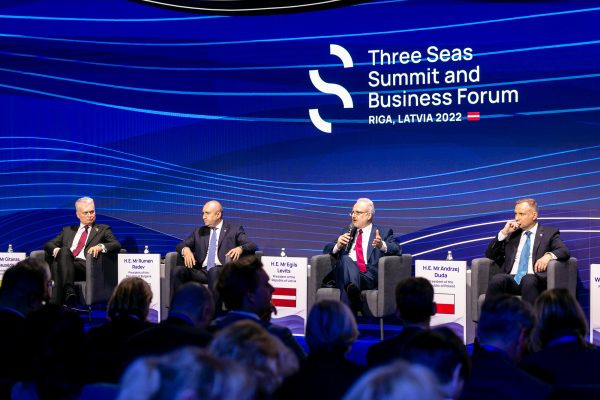I was privileged to be a part of the British semiconductor chip industry in its early years, shortly after an enlightened government had given birth to our first chip start-up, Inmos. Inspired by the 1978 BBC Horizon program Now the Chips are Down, Prime Minister James Callaghan had Inmos created in the Silicon Valley-style, with the British government as the lead venture capital investor.
Inmos designed and fabricated memory and graphics chips in the U.S. and UK, counting the then-mighty IBM amongst its customers. The descendent of its Transputer microprocessor enabled the subsequent owner, ST Microelectronics, to dominate the market for set-top box chips in the late 1990s when digital TV was launched. Inmos also spawned a huge technology ecosystem in Britain, its acquired expertise leading to many more technology start-ups with consequent intellectual property, wealth, and high-value job creation.
This week’s announcement that one of the descendants of Inmos, Newport Wafer Fab, is to be sold off to a Chinese-owned company for the bargain-basement price of £63m ($90m), sent shock-waves and disappointment through the industry. The British government initially declined to review the sell-off even on security grounds, then had to make a U-turn following pressure from newspapers and its own members of Parliament. However, with a worldwide shortage of semiconductors, and the plant in question now producing power components for vehicles, it is clear that the strategic importance of semiconductor development and production to prosperity and economic independence has been much better understood by the Chinese government than by the UK’s.
China has been playing the long game, steadily increasing its capability in semiconductors and electronics with massive state-backed investment and subsidies, gaining dominant market share in key areas such as solar panels and security cameras. Western companies owning key technologies but seen as vulnerable are picked off one by one. For example, former telecoms icon Marconi was effectively erased by the China Communist Party (CCP) through its proxy, Huawei, which offered its equipment to British Telecom virtually for free.
Where China lacks key intellectual property (IP) which is costly or slow to develop, it is obtained from the Western companies who own it. Most tech acquisition is achieved by legitimate means through licensing, provided that Chinese companies can obtain favorable terms which enable them to take ownership of the IP and develop it further. Another method is to buy IP-rich Western companies for hugely undervalued transactions, as Huawei did with the internet-of-things company, Neul.
When all else fails, China plc does not hesitate to resort to stealing, a policy referred to by the FBI as the “systematic theft of intellectual property.” This was the case with the U.S. start-up, Akhan Semiconductor. This company had developed an unbreakable glass for cellphones, and lent samples for evaluation under strict legal agreements that forbade potential customers from reverse-engineering the material. This did not deter Huawei, which studied the disintegration of the new material when subjected to industrial-grade lasers, thus revealing the secrets of its crystal structure: all in flagrant violation of the agreement it had signed with Akhan.
The U.S. firm was able to call on the resources of the federal government and the FBI organized a sting operation at a large electronics trade event in order to obtain redress. Such an operation would be hard to imagine in Britain, with the government no more willing to risk withdrawal of Chinese capital for strategic technology projects, such as the Hinckley Point nuclear power station, than it is to risk Russian oligarchs moving their dirty money out of London.
Another well-known CCP ploy to steal strategic IP is to force the Western company into a “joint venture” in order to do business in China. This is the fate that befell the Chinese subsidiary of that other formerly great British semiconductor icon, ARM Holdings. ARM had built up a significant presence in China in the belief that it could license its IP to Chinese semiconductor companies in the same way as it had successfully done in the West. It was then presented with a fait accompli: it had to separate its Chinese operation from the rest of the company and agree to majority Chinese ownership and Chinese “jurisdiction” — with no possibility to realize any value from this “transaction” for its existing shareholders.
The ARM story points to serious shortcomings among the UK’s current political class. The biggest part of the company is now under the ownership of U.S. giant, Nvidia. Although there are no security grounds for blocking a takeover from Britain’s most important security ally, there is no economic or strategic case for allowing a company with a dominant position in smartphone processors to slip out of British jurisdiction and control. Clearly, the U.S. government would never allow this to happen to the likes of Google or Apple, regardless of the price.
ARM was also the product of a UK government initiative, this time by ardent free-marketeer Sir Keith Joseph in Margaret Thatcher’s 1980s government. Whilst generally opposed to government intervention in industry, Sir Keith nonetheless persuaded the Prime Minister that something had to be done to educate children about the new technology of computers at a young age. The government then launched an initiative to put British-designed and British-made computers into every school, with a competition to design a machine branded by the BBC, which in turn made a series of educational TV programs using the computer.
Thus the BBC Micro was born, with the winner of the competition, Acorn Computers, gaining considerable business which it later used to design its own microprocessor chip, the RISC PC. Initially intended for computers, its low-power characteristics were perfectly suited to the battery-powered devices that started to emerge at the start of the 20th century. With a business model of licensing the IP for the processor rather than manufacturing any silicon chips, ARM was spun-off from Acorn to become an even greater British semiconductor success story than Inmos.
The loss of this key strategic national technology asset to Softbank of Japan, and its subsequent carve-up between the CCP and Nvidia, was described by the prime minister of the day as Britain being “open for business”. Such statements reveal a breathtaking technological illiteracy, which must be reversed if this vital U.S. ally is to retain some sort of technological independence from Chinese influence.
A good place to start would be to block the acquisition of Newport Wafer Fab by Chinese-owned Nexperia, in the way that the Dutch government failed to do with this descendant of once-great Philips Semiconductors. If the present prime minister fails, Britain’s technology strategy will have gone irretrievably backward since the more enlightened days of James Callaghan and Sir Keith Joseph.



